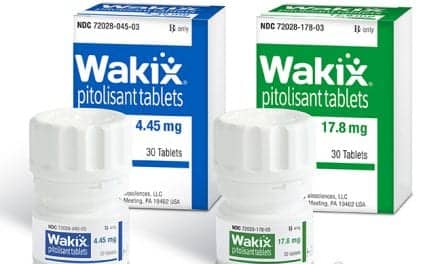New expert recommendations for the prevention and treatment of augmentation in patients suffering from restless legs syndrome (RLS) list Horizant (gabapentin enacarbil) as a first-line therapy with a lower risk of developing augmentation. The recommendations were created by the combined Task Force from the International RLS Study Group (IRLSSG), the European RLS Study Group (EURLSSG), and the RLS Foundation. In addition, gabapentin enacarbil is listed as an alternative treatment for the management of patients suffering from augmentation who were previously treated with dopaminergic medication.
“With up to 10 million Americans suffering from RLS, medical professionals need updated treatment algorithms to ensure that previously untreated patients receive appropriate first-time treatment,” says William Ondo, MD, professor, department of neurology, University of Texas Health Science Center at Houston and task force member, in a release. “These new RLS augmentation recommendations are an important tool for physicians to help prevent augmentation in RLS patients and to provide treatment options for those who have already experienced augmentation.”
Horizant Extended-Release Tablets is the only non-dopaminergic medication and the only alpha-2-delta calcium-channel ligand class medicine approved by the FDA for the treatment of moderate-to-severe primary RLS in adults.
The new recommendations for RLS augmentation state that physicians “should consider initially managing symptoms with non-dopaminergic drugs unless the risk of potential side effects is felt to outweigh the benefit of avoiding the risk of augmentation.” In addition, if a patient is experiencing augmentation, the recommendations state that the physician should “reduce and, if possible, eliminate the short acting dopamine agonist and to begin treatment with a long acting dopamine agonist or an alpha-2-delta calcium-channel ligand.”
Ronald W. Barrett, PhD, CEO of Horizant maker XenoPort Inc, says, “These new recommendations reinforce the need for RLS treatment options and help ensure that physicians have the most up-to-date information about preventing and treating RLS augmentation.”
Karla M. Dzienkowski, RN, BSN, executive director of the RLS Foundation, says, “Augmentation can negatively impact many aspects of a patient’s life. These new recommendations are an important advancement for patients suffering from augmentation and may lead to a reduction in the number of patients experiencing augmentation in the future.”



